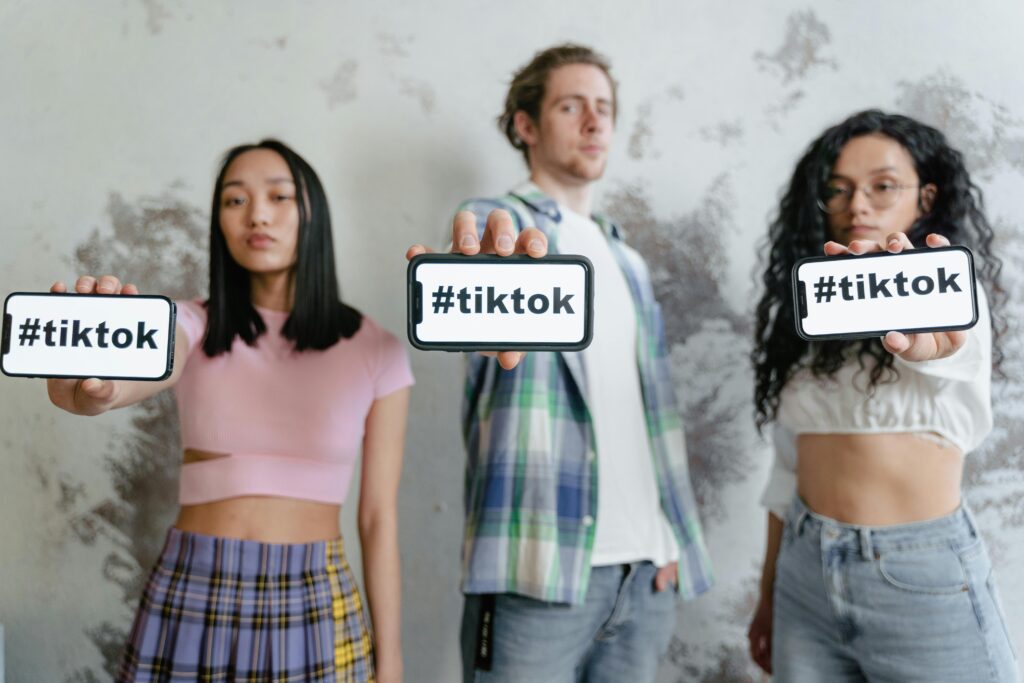The Future of TikTok: A Supreme Court Decision Reshapes the Digital Landscape
On January 17, the Supreme Court issued a landmark decision requiring ByteDance, TikTok’s Chinese parent company, to divest its U.S. operations by January 19, 2025, or face a ban in the country.
This ruling has introduced a new era of accountability for the platform, addressing concerns about national security while preserving its operations for millions of users.
For many, including members of the LGBTQ+ community, this decision ensures that TikTok remains a vital space for expression and connection.
However, it also signals a shift in how social media platforms will be governed moving forward.
Since its launch in 2016, TikTok has grown into a cultural juggernaut, boasting over 150 million active users in the U.S. alone.


Creators like Dylan Mulvaney, Alok Vaid-Menon, and Jeffrey Marsh have used the platform to challenge stereotypes, share personal journeys, and educate millions about gender and identity.
TikTok: A Cultural Phenomenon
Its short-form video format has transformed how we consume content, creating viral trends, launching careers, and even influencing global politics. For many marginalized groups, including the LGBTQ+ community, TikTok has been a beacon of visibility and empowerment.
Hashtags like #QueerTok and #TransJoy showcase the vibrancy and resilience of LGBTQ+ voices, offering a sense of belonging to those who might feel isolated in their offline lives.

The Dark Side of TikTok
However, TikTok is not without its controversies. Critics argue that the platform’s algorithmic design can exacerbate issues such as:
- Addiction and Mental Health: The infinite scroll and dopamine hits from likes and shares can lead to compulsive usage, negatively impacting mental health, particularly among younger users.
- Misinformation: TikTok has been a breeding ground for conspiracy theories and misinformation, often with real-world consequences.
- Data Privacy: Perhaps the most significant concern leading to the Supreme Court case is TikTok’s handling of user data. Owned by Chinese company ByteDance, the app has faced scrutiny over its potential to share user information with the Chinese government. While TikTok denies these allegations, the fear of foreign surveillance has fueled bipartisan support for a possible ban.
What the Decision Means
A ban on TikTok would be unprecedented, signaling a turning point in how the U.S. approaches foreign-owned tech companies. While proponents argue it’s a necessary step to protect national security, the loss of TikTok would also come with undeniable consequences:
- Loss of Community: For LGBTQ+ users and other marginalized groups, TikTok is more than entertainment; it’s a lifeline. Losing the platform could dismantle communities built on mutual support and understanding.
- Economic Impact: TikTok has been a launchpad for countless creators and small businesses. A ban could lead to significant financial losses for those who rely on the app for their livelihood.
- Censorship Concerns: Critics of the ban argue it sets a dangerous precedent for government overreach in regulating digital spaces, raising questions about freedom of expression.
Moving Forward
This decision reflects the complexities of balancing innovation, security, and community needs in the digital age. While TikTok must now operate under strict scrutiny, the ruling prevents an immediate loss of a platform that has become a cultural and economic powerhouse. The mandated divestiture will likely lead to significant restructuring, with ByteDance potentially selling its U.S. operations to an American company.
For the LGBTQ+ community, creators, and businesses, the decision ensures that their digital safe space and economic opportunities remain intact—at least for now. However, the heightened regulations may introduce new challenges, including changes to the algorithm and user experience as compliance measures are implemented.
This moment serves as a reminder of the evolving responsibilities of tech platforms to prioritize user safety and national security. It also highlights the need for continued vigilance and advocacy to protect the interests of marginalized groups and creators who rely on these platforms for visibility and connection.
As TikTok adapts to its new reality, its influence on culture, representation, and digital connection remains unparalleled. The future of TikTok will not only shape the platform itself but also set a precedent for the broader tech industry and the governance of digital spaces worldwide.










